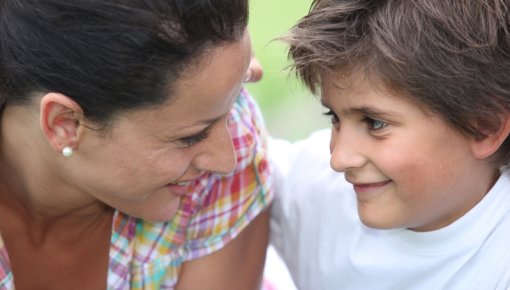Asthma is sometimes triggered by substances in the air that also irritate the airways of people who don't have asthma, such as perfumes, smoke and other pollutants. These substances can cause severe symptoms in people with asthma. Other substances and environmental conditions that are normally harmless – like dust, pollen, animals or temperature fluctuations – sometimes irritate the airways of people who have asthma, leading to an overreaction.
To protect your child, you need to know what triggers their asthma. It can help to observe what things and situations make their symptoms arise or get worse. But it's important not to exaggerate. Wrongly assuming that something is a trigger can lead to unnecessary restrictions. Precautions that might protect your child, but also prevent them from doing everyday things – like meeting up with friends, following their interests, and going to kindergarten or school – could do more harm than good.
Animals can trigger allergies. You should avoid direct and indirect contact with animals. If your child has an allergic reaction to a beloved pet, you should keep the pet in a separate part of your home. Sometimes that doesn't help. You may then have to find a new home for it. But it's only a good idea to take these measures if you know that your child's asthma symptoms flare up when they come into contact with animals. Avoiding pets hasn't been proven to prevent asthma.
Asthma is a complex disease. Trying to avoid triggers may not be worth the effort and sacrifices involved for your child. For example, it's almost impossible to completely avoid all dust mites. Individual measures hardly make a difference. But combining different measures may help – for instance, cleaning the floor with a wet rag, using a dust-mite-proof mattress cover, regularly washing the child's bedding at more than 55°C (130°F), and removing any "dust traps" such as upholstered furniture and rugs.
In most cases, as long as children use their controller medication properly, triggers no longer have an effect.

